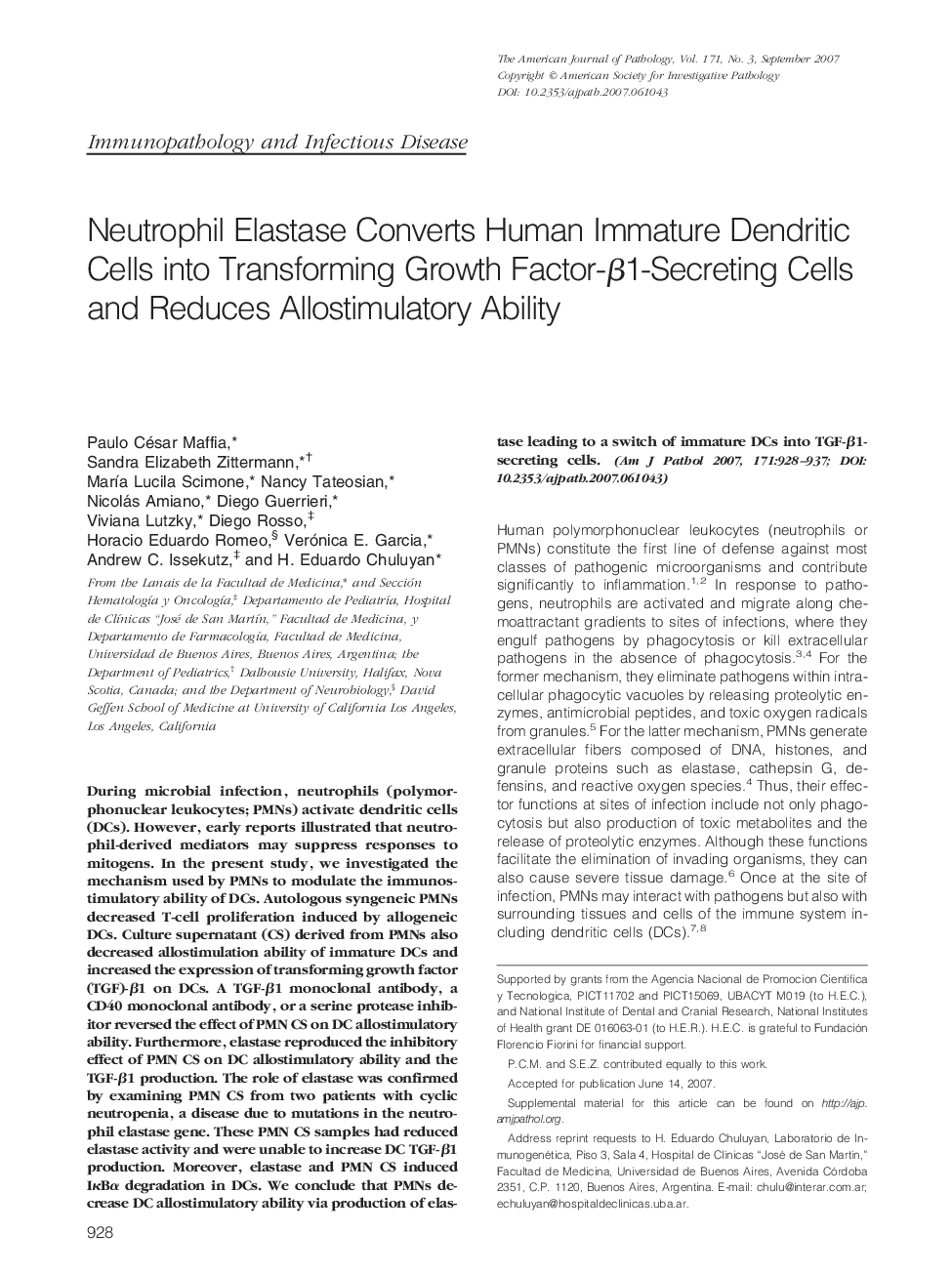| Article ID | Journal | Published Year | Pages | File Type |
|---|---|---|---|---|
| 5939105 | The American Journal of Pathology | 2007 | 10 Pages |
Abstract
During microbial infection, neutrophils (polymorphonuclear leukocytes; PMNs) activate dendritic cells (DCs). However, early reports illustrated that neutrophil-derived mediators may suppress responses to mitogens. In the present study, we investigated the mechanism used by PMNs to modulate the immunostimulatory ability of DCs. Autologous syngeneic PMNs decreased T-cell proliferation induced by allogeneic DCs. Culture supernatant (CS) derived from PMNs also decreased allostimulation ability of immature DCs and increased the expression of transforming growth factor (TGF)-β1 on DCs. A TGF-β1 monoclonal antibody, a CD40 monoclonal antibody, or a serine protease inhibitor reversed the effect of PMN CS on DC allostimulatory ability. Furthermore, elastase reproduced the inhibitory effect of PMN CS on DC allostimulatory ability and the TGF-β1 production. The role of elastase was confirmed by examining PMN CS from two patients with cyclic neutropenia, a disease due to mutations in the neutrophil elastase gene. These PMN CS samples had reduced elastase activity and were unable to increase DC TGF-β1 production. Moreover, elastase and PMN CS induced IκBα degradation in DCs. We conclude that PMNs decrease DC allostimulatory ability via production of elastase leading to a switch of immature DCs into TGF-β1-secreting cells.
Related Topics
Health Sciences
Medicine and Dentistry
Cardiology and Cardiovascular Medicine
Authors
Paulo César Maffia, Sandra Elizabeth Zittermann, MarÃa Lucila Scimone, Nancy Tateosian, Nicolás Amiano, Diego Guerrieri, Viviana Lutzky, Diego Rosso, Horacio Eduardo Romeo, Verónica E. Garcia, Andrew C. Issekutz, H. Eduardo Chuluyan,
